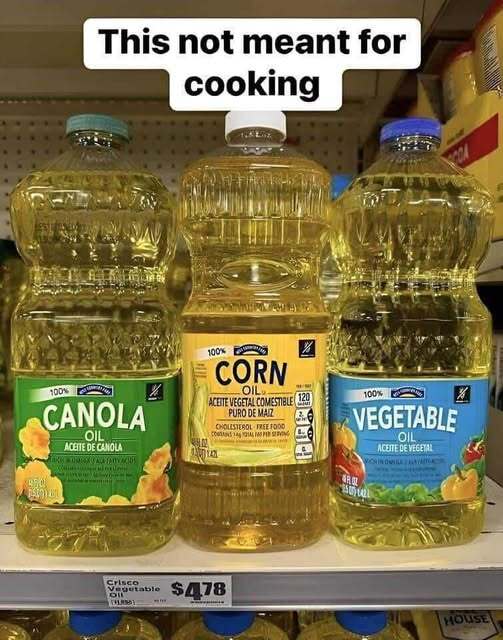ADVERTISEMENT
Cooking oils are an essential part of every kitchen, used for frying, sautéing, baking, and even salad dressings. However, not all oils are created equal. While some provide significant health benefits, others can contribute to inflammation, chronic disease, and even toxicity in the body when heated. Understanding which oils are safe for cooking and which should be avoided is crucial for maintaining good health.
In this article, we will explore why certain oils are not ideal for cooking, what happens to them when they are heated, and the best alternatives for healthy cooking.
1. Understanding Smoke Points and Why They Matter
When oil is heated past a certain temperature, known as its smoke point, it begins to break down and produce harmful compounds. At this point, the oil starts to:
- Release free radicals, which contribute to oxidative stress and inflammation in the body.
- Form toxic aldehydes, which have been linked to cancer and other diseases.
- Lose its beneficial nutrients, rendering it unhealthy for consumption.
Each oil has a different smoke point, making some better suited for high-heat cooking than others. Oils with low smoke points should not be used for frying or baking at high temperatures.
2. The Worst Oils for Cooking and Why They Are Harmful
Vegetable Oils (Soybean, Corn, Canola, Sunflower, and Safflower Oils)
Many vegetable oils are highly processed and extracted using high heat and chemical solvents, which strip them of their natural nutrients and introduce harmful compounds.
- High Omega-6 Content: Vegetable oils are rich in omega-6 fatty acids, which, when consumed in excess, contribute to chronic inflammation.
- Highly Processed: Most vegetable oils undergo refining, bleaching, and deodorizing, which damages their natural antioxidants and leaves them nutritionally depleted.
- Unstable at High Heat: When heated, these oils oxidize quickly, producing harmful free radicals that damage cells and increase the risk of heart disease and cancer.
Margarine and Hydrogenated Oils
Margarine and other hydrogenated oils were once promoted as healthier alternatives to butter, but research has shown they are one of the worst fats for human health.
- Trans Fats: These oils contain artificial trans fats, which increase bad cholesterol (LDL) and lower good cholesterol (HDL), significantly raising the risk of heart disease.
- Interfere with Cellular Function: Trans fats disrupt cell membranes, leading to metabolic issues and inflammation.
- Difficult to Digest: These chemically altered fats put stress on the liver and digestive system, making them hard for the body to break down.
Rice Bran Oil and Grapeseed Oil
Though often marketed as healthy due to their high smoke points, these oils still pose risks due to their high polyunsaturated fat content.
- High in Omega-6 Fatty Acids: Just like vegetable oils, excessive omega-6 intake from these oils can lead to inflammation.
- Easily Oxidized: Even though they have high smoke points, their polyunsaturated fat content makes them unstable when exposed to heat, leading to the formation of toxic byproducts.
- 👇 To continue reading, scroll down and click Next 👇
ADVERTISEMENT
